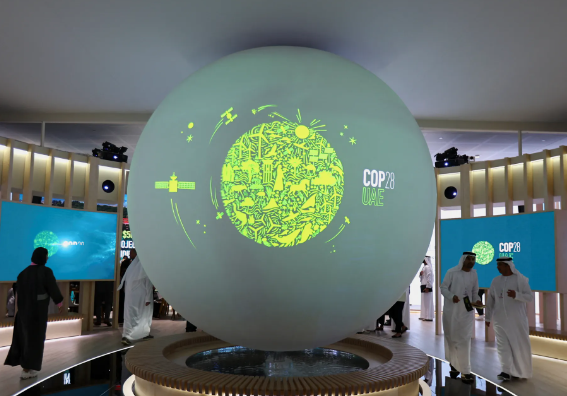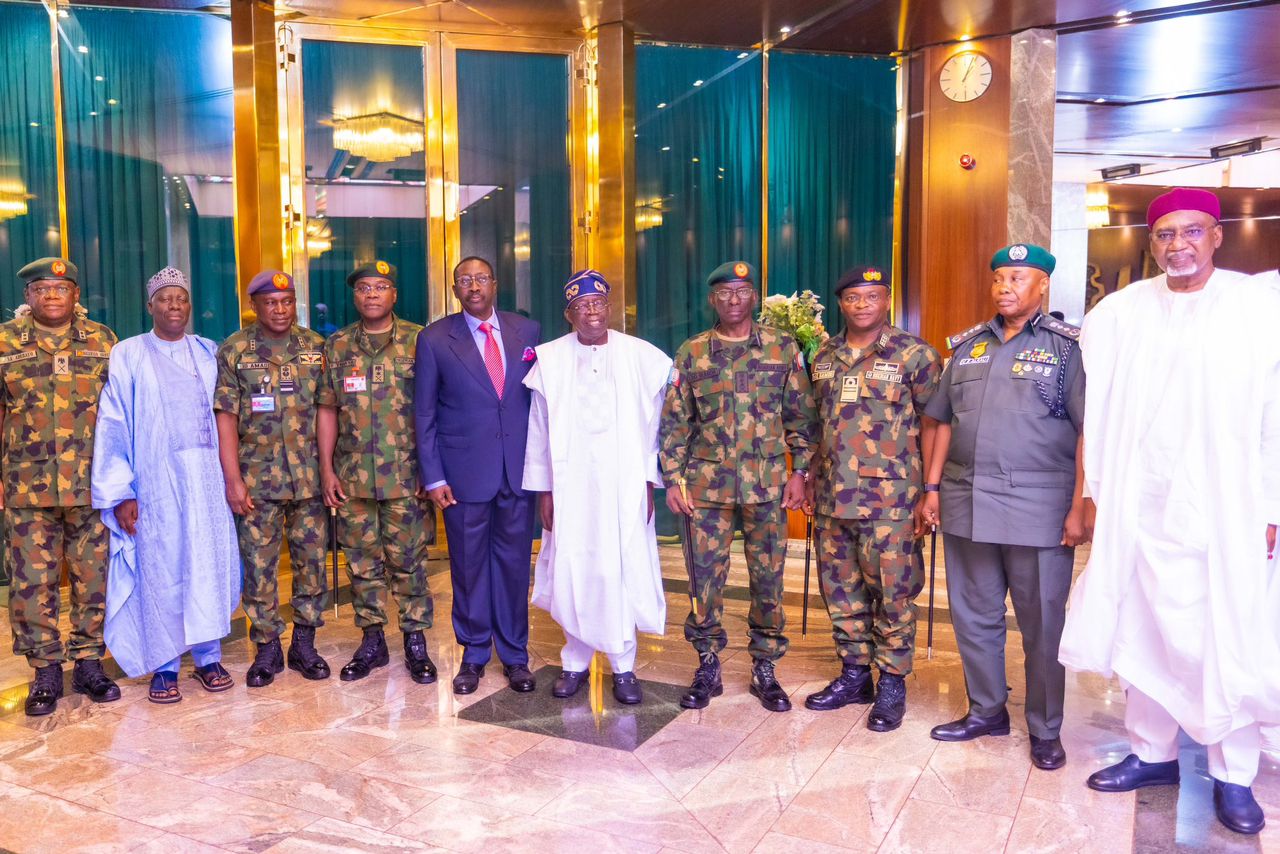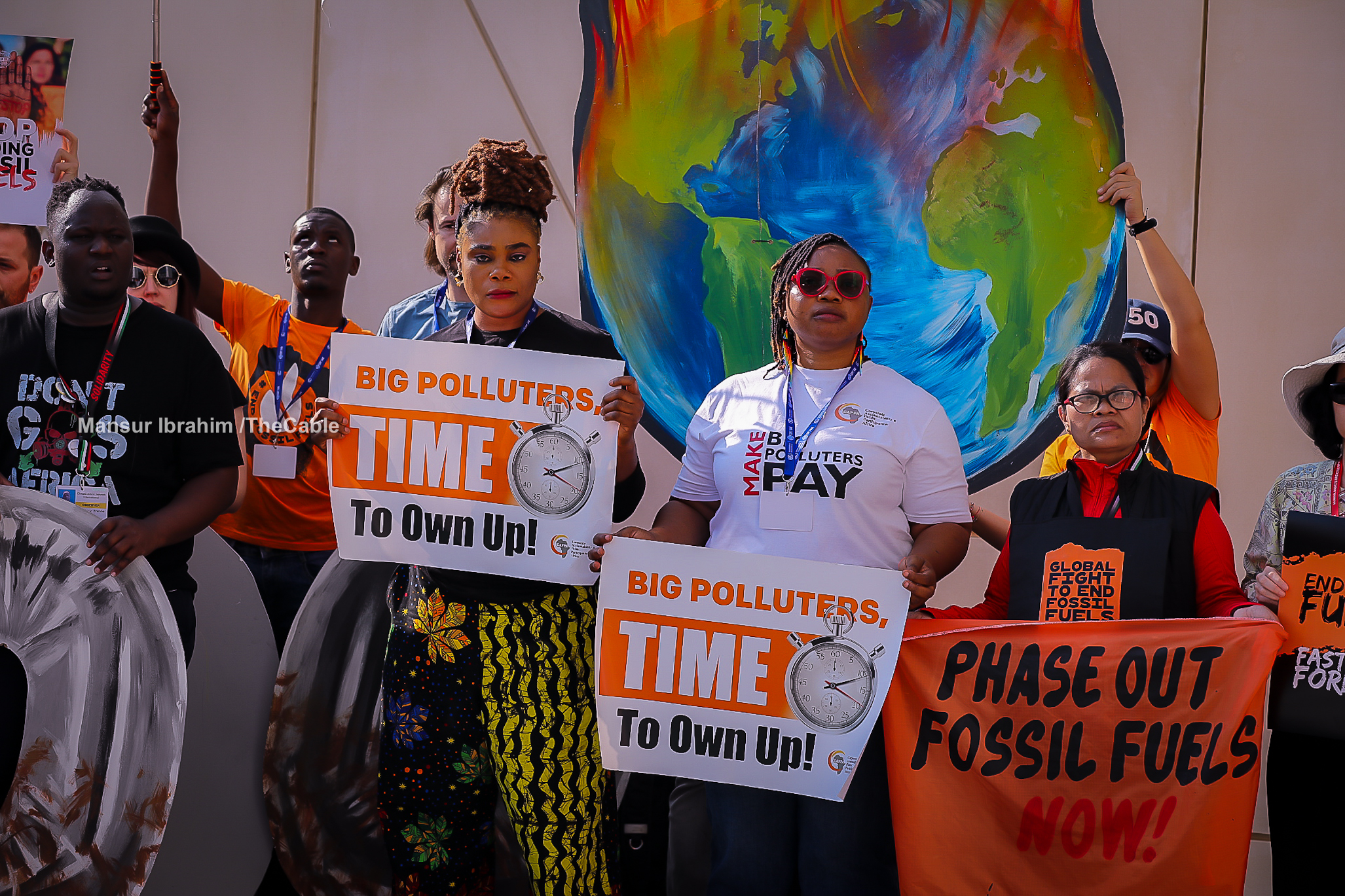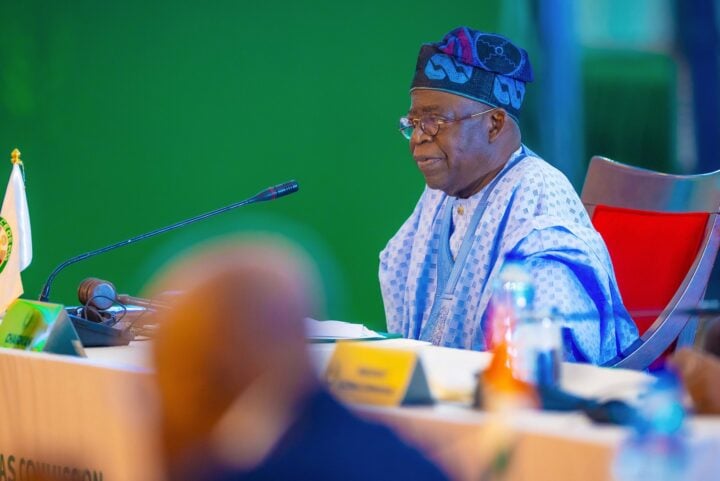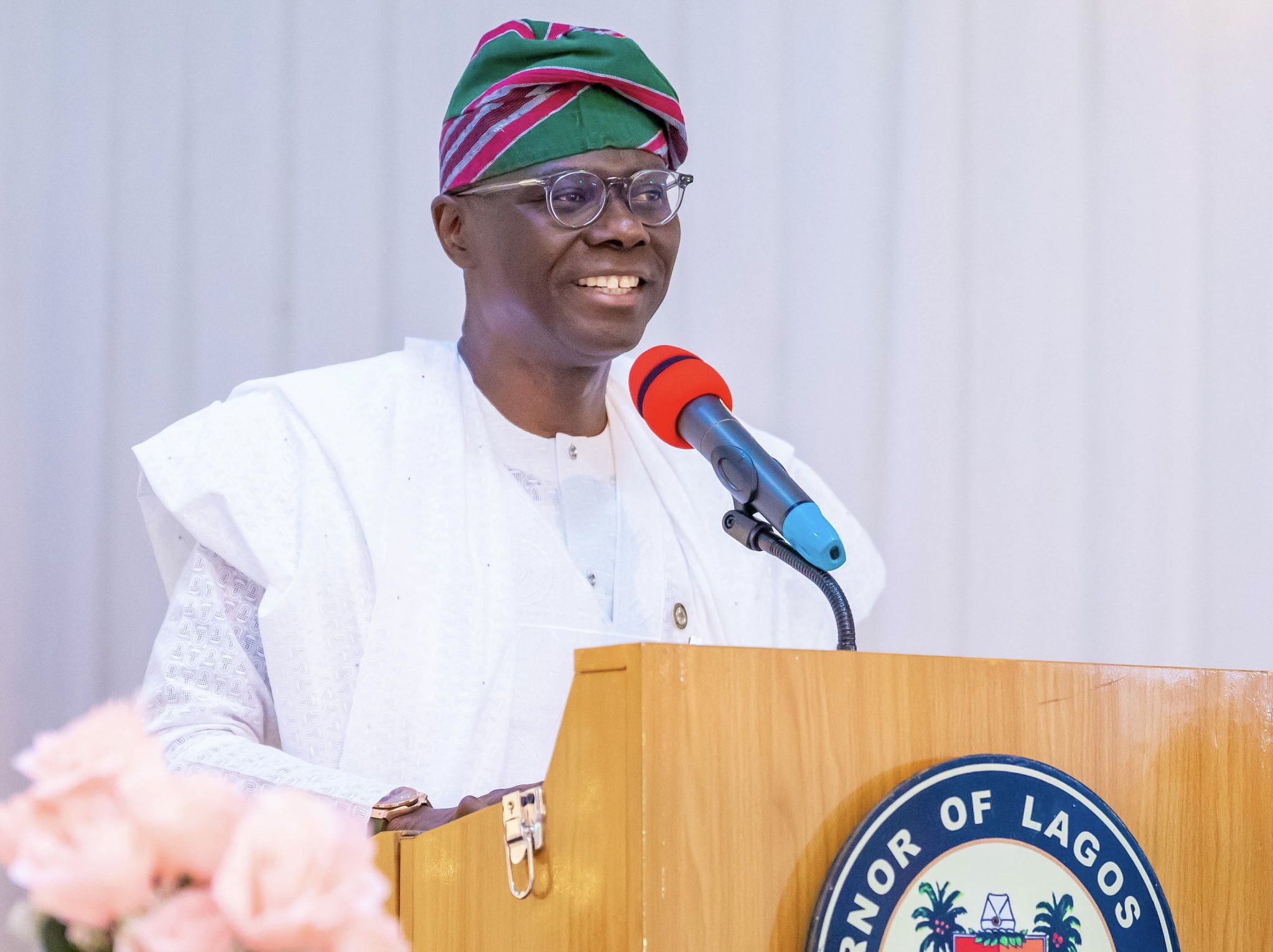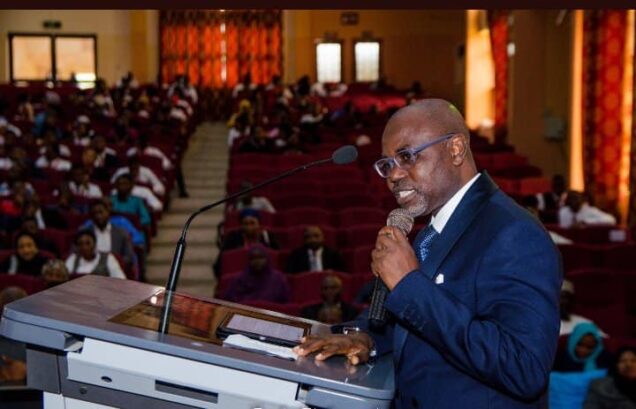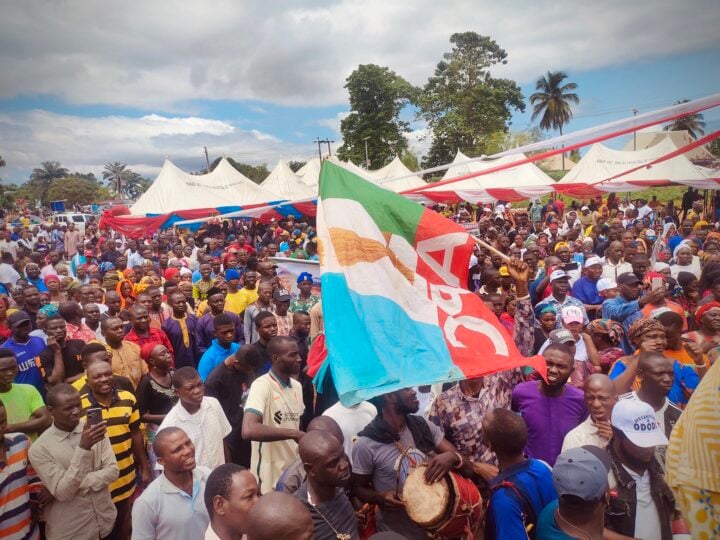BY DARE AKOGUN
In the aftermath of the recently concluded COP28 in Dubai, United Arab Emirates, representatives from about 200 countries agreed to begin a deliberate reduction in global consumption of fossil fuels to avert the worst impacts of “climate change” on the environment, in a first-of-its-kind deal, signalling the eventual end of the oil age.
The deals struck in Dubai after two weeks of hard-fought negotiations, in early December 2023, were meant to send a powerful signal to investors and policymakers that the world is united in its resolve to phase down, and eventually phase out fossil fuels — something scientists say is the last best hope to stave off climate catastrophe.
The transition to sustainable alternatives such as solar, wind, and hydroelectric power gains momentum as nations seek to diversify their energy portfolios.
Advertisement
This presents an unprecedented opportunity for investment in renewable technologies, fostering innovation, and creating a more resilient and environmentally friendly energy culture.
In all of these, Kwara state is poised to harness the unprecedented opportunities for climate adaptation and mitigation.
The global summit’s key takeaways centre on the integration of renewable energy, and the creation of carbon sinks exemplified by the yet-to-be-commissioned rehabilitated “Flower Garden”, located at the Ilorin city centre and plans for climate education.
Advertisement
Renewable energy integration: A gateway to sustainability
COP28 has ignited a beacon of hope for countries like Nigeria and a state like Kwara as it contemplates a transformative shift towards eco-friendly energy.
Key discussions and insights from the summit underscore the potential of harnessing solar, wind, and hydroelectric power to diversify and enhance the state’s energy mix. The Kwara state government can leverage this by exploring avenues for investment and collaboration to usher in, a new era of sustainable energy practices.
One of the standout pieces of advice from COP28 is for governments around the world especially in the global south to create parks, and forest reserves in in urban areas to serve as carbon sinks.
Advertisement
Kwara has already taken a remarkable step in that direction with the revampment of the Flower Garden, to serve as a local carbon sink initiative.
Mimicking the commitment demonstrated at the global summit, this garden serves not only as a visually captivating Green Zone within the Ilorin metropolis but as a practical model for offsetting carbon emissions. Kwara’s embrace of such initiatives is in alignment with global efforts to combat climate change starting from the local level.
Monitoring and executing ecology projects to tackle flooding
Kwara state should intensify efforts to monitor and execute ecological projects to tackle the persistent challenge of flooding in Ilorin, the state capital, and other parts of the state.
Advertisement
According to details of the Federation Account Allocation Committee (FAAC) (January 2023 disbursement) published by the National Bureau of Statistics (NBS), 36 states of the federation and 774 local government councils received a total of ₦8.4 billion as ecological funds in January 2023. While states got ₦4.6 billion, local governments received ₦3.8 billion.
The funds were received by states and local governments despite the inability of some of them to justify over ₦64.417 billion given to them between 2021 and 2022.
Advertisement
In all, the NBS data shows that states have received N69 billion as ecological funds between 2021 and January 2023. Of this figure, a total of ₦1,156,671,187 has accrued to Kwara state. The state had received ₦1.048 billion as ecological funds between 2021 and 2022 before the fresh ₦108 million was disbursed in January 2023.
Concerns have, therefore, been raised over the use of the ecological funds in Kwara state, and investigations reveal that the projects are shrouded in secrecy.
Advertisement
The only ecological project being undertaken in the state, according to the ministry of environment officials, is the dredging and embarkment work at the Asa River.
By leveraging COP28 takeaways, there is the need for the state government to work, collaboratively, with the Ecology Project Office domiciled in the Presidency to ensure that the dredging of the Asa River which is past its project completion timeframe is completed. Working with environmental agencies, the National Council on Climate Change, Non-governmental Organizations, and civil society organisations (CSOs) to implement effective flood-prevention strategies that will ensure the safety and well-being of the residents.
Advertisement
Voices from Kwara’s leadership
In an exclusive chat with this writer on the sideline of the global summit, the special adviser to the Kwara state governor on education, Adetola Salau, emphasised the key role of climate education in achieving a sustainable environment in Kwara.
She expressed optimism about the transformative potentials of COP28 insights and the imperative of raising awareness about climate change across all age groups.
“Kwara state is committed to translating the lessons from COP28 into tangible actions,” she said.
“We see renewable energy as a game-changer and are thrilled to integrate eco-friendly initiatives like the flower garden. We have to make sure that everyone, from young to old, is aware of climate change and understands the need to contribute to reducing the impacts on the environment.
“Sensitizing people on what they can do to reduce carbon emissions, recycle waste, and adopt sustainable practices is crucial.”
Highlighting the collaborative approach, Salau mentioned ongoing efforts with partners to establish channels for disseminating vital information.
While underscoring the government’s commitment, Salau revealed that making Kwara state sustainable is a top priority.
“We are working with partners to create channels that provide people with the necessary information to understand how to actively participate in the fight against climate change. This aligns with the discussions at COP28, and we have initiated steps to integrate climate education into the primary and post-primary school curricula,” she said.
Local enthusiasm and community engagement
The impact of COP28’s takeaways is not limited to government initiatives, local communities in Kwara are expected to embrace sustainable practices.
Community leaders and other stakeholders should be inspired by global efforts and initiate grassroots movements to promote eco-friendly habits with an emphasis on the importance of collective action in the face of climate change.
As Kwara state reflects on the lessons from COP28, it stands at the threshold of a green future. The integration of renewable energy, the creation of carbon sinks, and the execution of ecology projects will showcase the state’s commitment to sustainable practices.
With COP28 as a catalyst, Kwara can emerge as a reference for climate resilience, by demonstrating that local actions can contribute significantly to global efforts in combating climate change.
Akogun is an Ilorin-based climate journalist, he covered the just concluded COP28. He can be reached via [email protected] or 08077444871.
Views expressed by contributors are strictly personal and not of TheCable.
